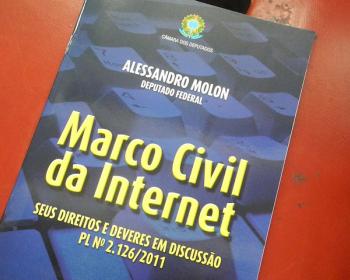cyber security
At APC, we remain concerned about the proposed Prevention of Electronic Crimes Bill in Pakistan which poses grave risks to freedom of expression, the right to privacy, and access to information in the country.
The Foundation for Media Alternatives is dismayed by the Philippine Supreme Court’s decision to uphold the constitutionality of the majority of provisions in a cyber crime law that the organisation views as oppressive, susceptible to abuse, and against the fundamental liberties guaranteed by the constitution.
This paper introduces some important conceptual issues in cybersecurity, investigates some important cybersecurity threats, and provides suggestions on what a civil society approach to cybersecurity should look like.
It’s short, but it matters. In no more words than a Twitter message, Brazil made many internet rights activists happy in September. It’s worth revisiting this message and putting in context.
In July 2012, Canada, along with 84 co-sponsors at the UN Human Rights Council, confirmed the importance of the promotion, protection and enjoyment of human rights on the internet, and in particular, freedom of expression online. This joint submission follows up on recommendations made in the first Canadian UPR and covers the following topics: - Public oversight and transparency in the context...
On October 9, the Supreme Court of the Philippines will decide on the constitutionality of the Cybercrime Prevention Act of 2012. This cyberlaw has been contested from day one, after internet activists had pointed to truly problematic provisions incompatible with internet rights.
The Government of Pakistan is working to revive and restructure the cyber crime law, which lapsed in 2009. Stakeholders who are being consulted are corporations such as telecom operators, ISPs, and governmental organisations. However, no representative civil society organisation holds an opinion even though it is a globally accepted norm that governments use a multi-stakeholder process to ensur...
The recent amendments to the Malaysian Evidence Act, passed without debate at Parliament on May 19 2012, clearly signal the government’s intention to increase censorship on the internet.
Pages
- « first
- ‹ previous
- 1
- 2
- 3

Association for Progressive Communications (APC) 2022
Unless otherwise stated, content on the APC website is licensed under Creative Commons Attribution 4.0 International (CC BY 4.0)






